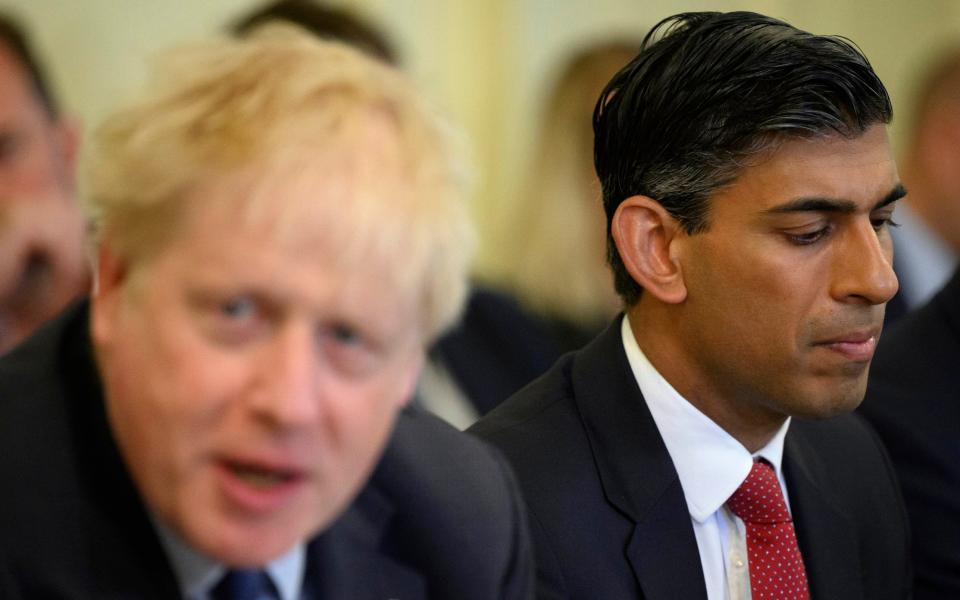Soaring debt interest forces Rishi Sunak to borrow £14bn

Rishi Sunak’s hopes of a pre-election tax giveaway are evaporating after surging debt interest payments pushed borrowing up to £14bn, economists have warned.
Public sector borrowing rose to £14bn in May - £2bn more than economists expected - cutting the Chancellor’s headroom for further spending.
Borrowing was already £6.4bn above forecast for the first two months of the financial year.
It came as soaring inflation pushed the cost of servicing the government’s debt almost 50pc above forecasts.
Debt interest payments hit £7.6bn, the highest for any May on record, the Office for National Statistics said, dominated by £5bn of costs on gilts linked to the retail price index. These were £2.5bn higher than the £5.1bn forecast by the Office for Budget Responsibility (OBR).
Around one-quarter of the nation’s £2 trillion debt is linked to the RPI measure of inflation, which surged to 11.7pc last month.
Paul Dales from Capital Economics said borrowing would likely be £11bn higher this year than the £99bn forecast by the OBR.
“That would reduce the room for the Chancellor to cut taxes and/or provide more grants to households when a further rise in CPI inflation to 10-11pc in October worsens the cost of living crisis,” he said.
The Government is also providing a £10.3bn cost of living support package for households that kicks in this autumn. Mr Sunak said he is “being responsible with the public finances”.
Meanwhile, household confidence dropped to a record low in June amid the deepening cost of living crisis, prompting warnings that Britain “faces a stark new economic reality”.
GfK’s confidence tracker slipped for a sixth consecutive month, from minus 40 to 41. The gauge has tracked UK consumer confidence since 1974, meaning sentiment is now weaker than at any point during the pandemic, financial crisis and high unemployment of the 1980s.
Joe Staton at GfK said: “One thing is for sure, Britain faces a stark new economic reality and history shows that consumers will not hesitate to retrench and tighten their purse strings when the going gets tough.”
He said the drop was driven by a “summer of discontent” as prices surge and industrial strife causes misery for commuters.
According to Ken Murphy, chief executive of Tesco, most people in Britain are "terrified" of the effect the cost of living crisis will have on their families. Speaking at the Consumer Goods Forum in Dublin on Thursday, he said: "We're on the front line talking to customers every day and we can see and feel the pressure on the family budget. So I can't overstate the mood of the people in all our markets."
Signs of consumer stress are particularly evident in the UK, he said, but are also present in Ireland and in central Europe where inflation has hit an all-time high.
"We are on the front line talking to customers and can see and feel the pressure on the family budget."

 Yahoo Finance
Yahoo Finance 